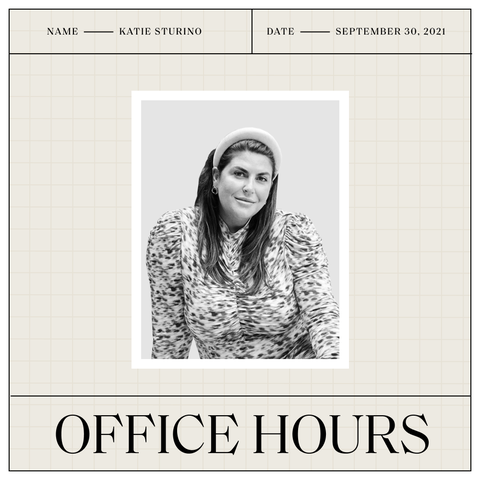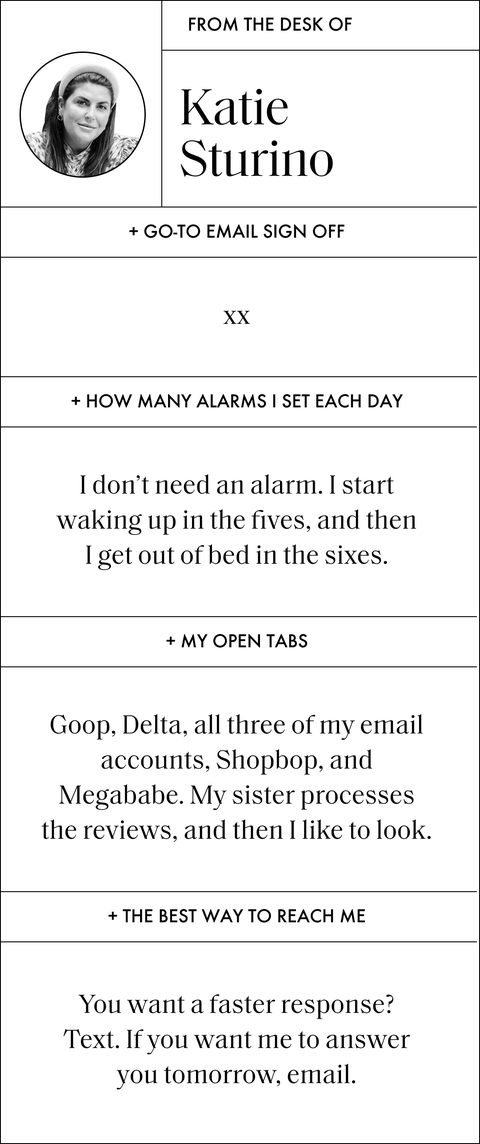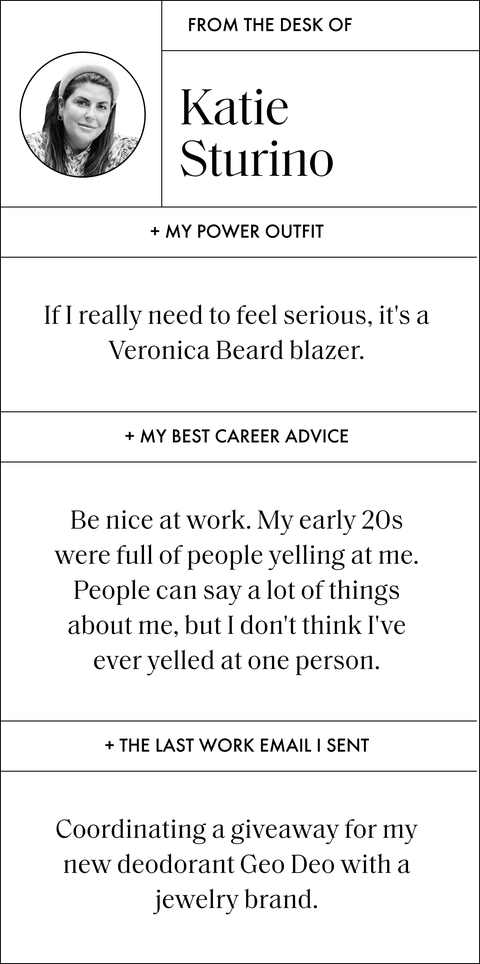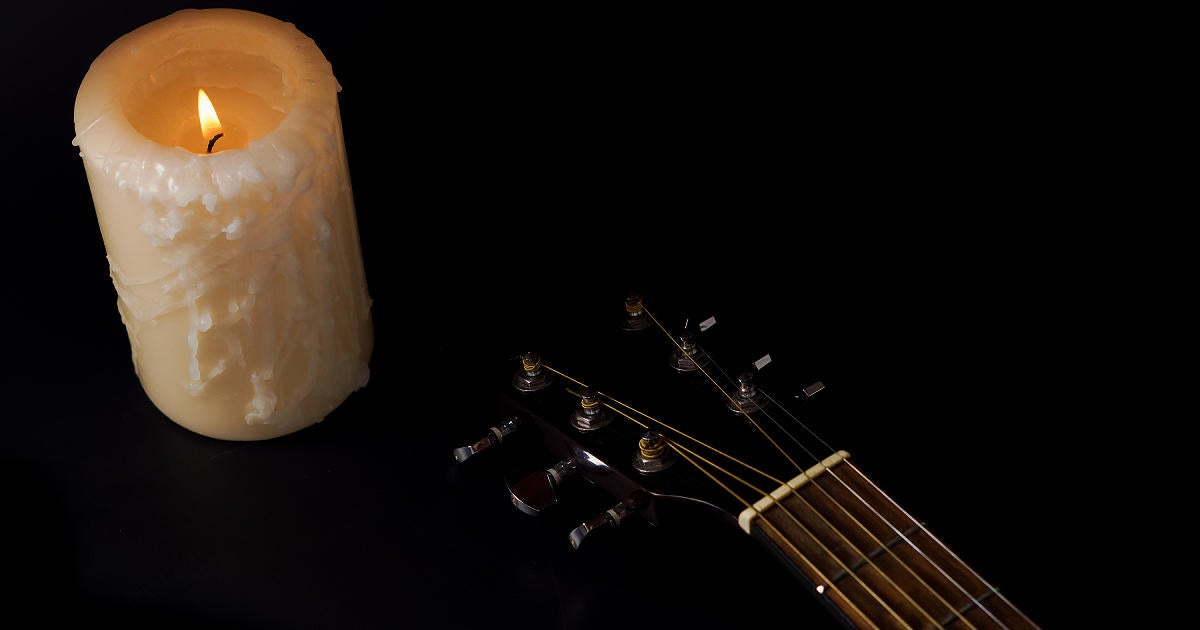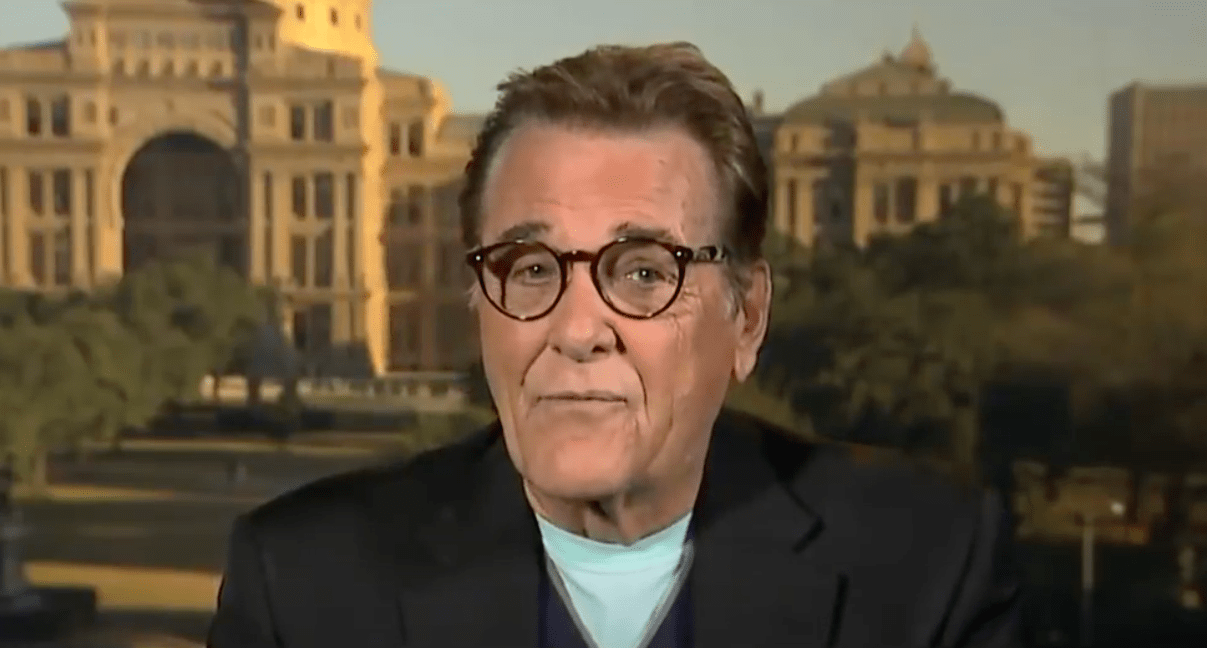Katie Sturino On Trusting Your ‘Crazy’ Ideas and Faking It Til You Make It
In ELLE.com‘s monthly series Office Hours, we ask people in powerful positions to take us through their first jobs, worst jobs, and everything in between. This month, we spoke with Katie Sturino, who started her career in fashion PR before taking over her own corner of the Internet as an entrepreneur, influencer, and body acceptance advocate. If you’re not one of her 650K Instagram followers, you probably know her from one of her other ventures: She’s the brains behind the blog The 12ish and the podcast Boob Sweat; she turned her late dog Toast into a viral Instagram star; she’s the author of Body Talk; and she’s the founder of the internet-favorite beauty brand Megababe. “I’m a real career chameleon,” says the multi-hyphenate. “I’m on my fourth real career right now.” Below, Sturino reveals her advice for starting a business, the piece of clothing that makes her feel like a boss, and how she’s learned to trust her “crazy ideas,” even when people were telling her otherwise.
My first job
My high school job was babysitting, but when I moved to New York, I worked my first retail job at Club Monaco, because I needed a supplemental income. Working in retail is really hard. I’m bad at folding. I’m bad at hanger spacing. I’m bad at the cash register. But I was great at helping people pick out clothes. I got up in people’s faces, and I was like, “Do you have an event you’re shopping for?” and they were like, “No, I’m just browsing,” but I would help them anyway. I learned about customer service and dealing with people and making people feel good.
Why I started my own PR firm at 25 years old
I loved working in public relations. I loved connecting businesses with media and having an impact on their sales and their growth. I did not love the environment that fashion PR typically came with, so I decided to work on my own. My family was like, “Don’t do this, you’ll have to move home,” but you have to take risks if you’re going to be successful. I don’t think that means you quit your job and have no backup plan and no savings; it just means that it can be scary. Was I young, and was I faking it until I made it? For sure. But I knew that I would work hard for people, and I knew that was not something that people always did in the office where I came from.
This content is imported from Instagram. You may be able to find the same content in another format, or you may be able to find more information, at their web site.
What I learned managing a viral dog account
In 2011, there were no famous dogs on Instagram. So when I said, “I’m going to make Toast a famous fashion dog, and we’re going to talk about puppy mill rescue,” people were like, “Don’t do that.” But when I started my PR company, everyone said don’t do it, and then I was able to support myself and I loved my job. That was a real sign that I should listen to my gut and listen to the crazy ideas that I have, even when everyone around me says they’re dumb. Both PR and dog-aging were professionally successful and personally rewarding, but part of having a modern job is that you’re always going to have to reinvent yourself. So when the dog market was getting oversaturated and that business was changing, I leaned into another thought I had, which is that there was no one out there who was my size doing style the way that I do it. Again, people said, “Don’t do this,” but I listened to myself. It’s the same pivot when I started Megababe. I had a bunch of people telling me no. I have always had to follow my instincts.
This content is imported from Instagram. You may be able to find the same content in another format, or you may be able to find more information, at their web site.
My advice for staring your own business
People say, “I want to start this pedicure company, but I’d have to quit my job first, so that I can focus on the pedicure company.” You don’t quit your job to focus on the pedicure company. You side hustle the pedicure company until you have so much work with it that you can’t do your regular job. People are always like, “Well, I have to pay my bills.” Of course you have to pay your bills. No one’s saying to go quit your job today. Also, not everyone’s an entrepreneur. That’s something I’ve had to learn. Working in small businesses requires that you wear many hats, that you are a self-starter, that you’re able to do things on your own. Not everyone wants to work like that.
Why I call myself a “body acceptance advocate”
The body positive movement is responsible for where we are today, and as it’s become successful, we’ve been allowed to get more nuanced. I loved the concept of diversity in advertising and the clothes that people are offered and who we’re seeing in positions of power. But what I didn’t love is the idea of radical love for every part of your body, out loud, paint your stretch marks, write a love letter to your cellulite. That didn’t jive with my own personal feelings. I was much more like, “Okay, you have really wide, big feet. Let’s move on.” I just want women to accept themselves the way they are right now. Doesn’t mean you can’t change your body, doesn’t mean you can’t gain or lose weight. It’s more about separating your self-worth from the number in your shirt or the size of your pants or the number on the scale.
This content is imported from Instagram. You may be able to find the same content in another format, or you may be able to find more information, at their web site.
How I approach making change in my industry
Call people in. It’s a different approach. Calling people out, boycotting, singling people out, canceling people—there certainly are people who deserve that. But in my opinion, you have to give people the opportunity to change. The first step can be making them publicly aware of the problem. That’s why I go into stores, and I try on a size 10. I understand a size 10 doesn’t fit me. I’m trying to show the people in that design room how far away they are from being able to dress my body and how small their biggest size is. Whether they want to make that change or not is fine. In this day and age, brands who decide they don’t want to extend their sizes and stay at a size 10, that’s a real choice.
This interview has been edited and condensed for clarity.
This content is created and maintained by a third party, and imported onto this page to help users provide their email addresses. You may be able to find more information about this and similar content at piano.io

